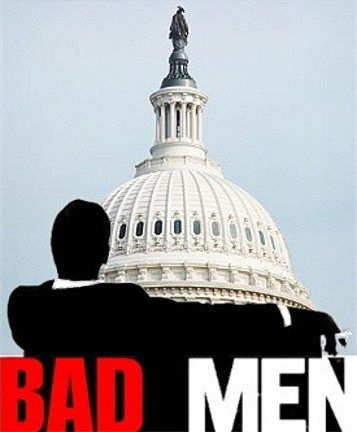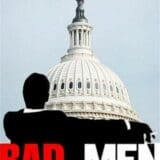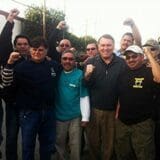

The Los Angeles Department of Water and Power’s preliminary budget will come before the Los Angeles City Council today. There’s lots there to consider, from hundreds of millions of dollars for rebuilding local power plants and renewable energy to hundreds of millions more to replace an aging distribution system.
Buried in the budget is a piece of good news that deserves some recognition. The LADWP’s $88 million energy efficiency budget is looking more respectable than it has in the past and more on par with other utilities. Last year, the Department spent $50 million. This year’s budget is not quite where it should be, but it’s moving in the right direction.
That is due in large part to a campaign led by RePower LA, a citywide coalition of community groups, environmentalists, small businesses and IBEW Local 18 committed to expanding energy efficiency investment in a way that leads to career-path jobs,
» Read more about: Community Activism Powers Energy Efficiency at LADWP »


Three weeks ago March Madness in Washington gave way to April Apoplexy, a time when conservatives put aside the boring tasks of creating jobs, loosening credit and saving people’s homes in order to follow their true passion – kicking the ladder away from Americans who are trying to climb up to better lives. And what easier way to do this than to gut the work of the National Labor Relations Board (NLRB), an agency that has become a favorite chew toy of Congressional right-wingers?
Remember the doomsday predictions made by the U.S. Chamber of Commerce and others when the NLRB insisted that businesses put up the board’s tiny poster advising employees of their rights? That teapot tempest is now clogging up the federal courts, thanks to the chamber, but such mischief is nothing compared to what the chamber’s caddies in Congress have been up to.
» Read more about: Anti-NLRB Vote: A Dark Victory for Conservatives? »


(Editor’s Note: This post, written by Twilight Greenaway, originally appeared on Grist, about the same time a bribery scandal allegedly involving Mexican Walmart officials began unfolding.)
Shrimp has been hovering near the bottom of the list of things I will eat for a while. Unless you make a point to get it wild, chances are very good it has been raised in a crowded pond and treated with loads of antibiotics. Factor in its mammoth carbon footprint, and the fact that many of the developing world’s mangroves have been displaced in recent years to make room for shrimp farms, and my appetite for these crustaceans all but disappears.
Now we can add labor abuse to shrimp’s laundry list of problems.
A group of shrimp workers has been protesting dismal conditions in a Thai factory for weeks.
» Read more about: Walmart's Thai Shrimp: A Jumbo PR Nightmare »


(Editor’s Note: This post first appeared on Dr. Pop.)
On April 27, 1992, my mother had to make probably one of the most difficult decisions in her life— to take my grandmother off life-support. I was eight years old and I remember standing in the hallway, outside Mama Toya’s room because the doctors and nurses said I was too young to see her. Her long battle with colon cancer was finally over; this painful disease had transformed a vibrant and resilient woman into a frail 40-pound shell of a person. She was finally at peace. The pillar of our family left this earth as Los Angeles was at the brink of burning in flames.
Victoria Quintanilla, better know to us as Mama Toya or Niña Toya, arrived to the United States in 1986, six years after my mother came to Los Angeles and three years after I was born.


 Writer Patty Lovera has an illuminating – if alarming – takedown of Walmart’s frequent green boasting. Her Grist feature, “Top 10 Ways Walmart Is Failing on Sustainability,” points out that while “Walmart’s green PR machine has been running on overdrive lately,” the retail giant gets an F on its environmental and social report card in 10 critical categories.
Writer Patty Lovera has an illuminating – if alarming – takedown of Walmart’s frequent green boasting. Her Grist feature, “Top 10 Ways Walmart Is Failing on Sustainability,” points out that while “Walmart’s green PR machine has been running on overdrive lately,” the retail giant gets an F on its environmental and social report card in 10 critical categories.
Summarizing an analysis done by Food and Water Watch, Lovera notes, among other things, that Walmart falls flat by gobbling up previously undeveloped land for its big box stores, selling organic versions of processed products made by industrial food giants and spreading poverty by degrading the quality of life of neighborhoods where it locates.
Lovera also takes aim at Walmart’s recently published, 126-page Global Responsibility Report that ballyhoos the beneficial role Walmart plays on the environmental stage and in the lives of its employees and the communities it operates in.
» Read more about: WebHot: Walmart's Bad Green Report Card »


It was a Wednesday night and my son was watching the news on TV in his room while I fixed dinner. “Dad,” he called from the bedroom, “Dad, you better get in here and see this.”
“This” turned out to be the beginnings of the worst urban social upheaval in American history. Its early moments were caught on film by a news helicopter high over the intersection of Florence and Normandie. We watched, transfixed, as some black kids pulled a white truck driver out of his cab and one of them hit him with a brick. An Asian woman was threatened as she tried to make a right turn off Normandie onto Florence, her face etched with fear. Car windows were broken. The news commentators called them “hoodlums” and the police were nowhere in sight. Then we watched as the city began to burn.
I was an undergrad at UC Santa Barbara when Watts upended L.A.
» Read more about: 1992 Remembered: Driving Into the Wreck »


On April 11, port truck drivers working for Australian transportation conglomerate Toll voted by a 3-1 margin to join the Teamsters. They were the first port truck drivers in a generation to vote to unionize, giving hope to the 11,000 other drivers in the region trying to improve their generally miserable working conditions. (See video below.)
The victory came despite the efforts of Joseph Brock, a former Teamster turned anti-union consultant parachuted in by Toll to discourage workers from organizing. Union busters have become a standard feature of contemporary union organizing, trading on intimidation, false promises and even illegal firings.
Brock’s message was a well-worn one – unions are like businesses, they are only looking for dues, they ignore or misrepresent their members and so on. But he wasn’t a slick attorney in a suit or a browbeating manager. The fact that he’d been a union official for over a decade and came from a die-hard union family was supposed to carry weight with Toll drivers.


(Editor’s Note: This post, by Kathleen Peine, originally appeared at L.A. Progressive.)
There’s something buried in a new Pennsylvania law and it’s every bit as toxic as the chemicals used to unearth natural gas through that process called fracking. Lurking in that law is a form of enforced ignorance.
And as Will Rogers said, “When ignorance gets started, it knows no bounds.”
In this law there is a provision that essentially gags physicians when they want to tell their patients what particular chemicals they have been exposed to, should they become ill from exposure to fracking chemicals. The doctors will be required to sign confidentiality agreements in order to find out the components in their quest to treat stricken individuals. The law is advanced as a protection of proprietary secrets……as if we’re talking about New Coke here.
» Read more about: Pennsylvania Doctors on Fracking: Our Lips Are Sealed »


(Our coverage of Los Angeles’ 1992 civil unrest continues with this post by Martín Hernandez, a former Bus Riders Union organizer, L.A. Weekly theater critic and a currently “overworked Social Worker with L.A. County’s Department of Public Social Services.” He is also an SEIU Local 721 shop steward.)
“Maybe we should break into Circuit City and get us some new computers.”
I remember this idea floated among me and other volunteers who worked for a cash-strapped State Assembly candidate’s campaign when the fires and “looting” erupted after the not-guilty verdict for the cops accused of beating Rodney King. Ours was a dark attempt at humor as decades of pent-up rage exploded around Los Angeles, unleashed from people too long oppressed based on the color of their skin and their lack of the color of money. Even a prominent Latina politician opined one night in our Montebello campaign office that the only time “they” pay attention to “us” was when “we” burned things down.